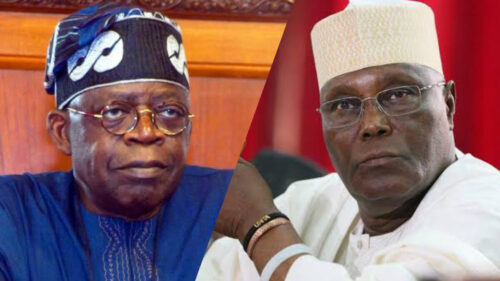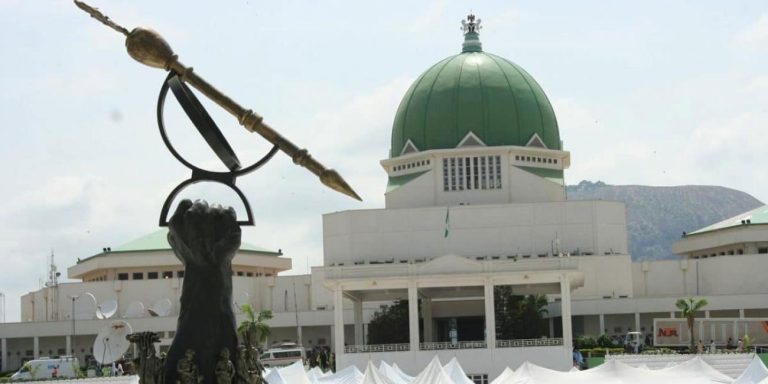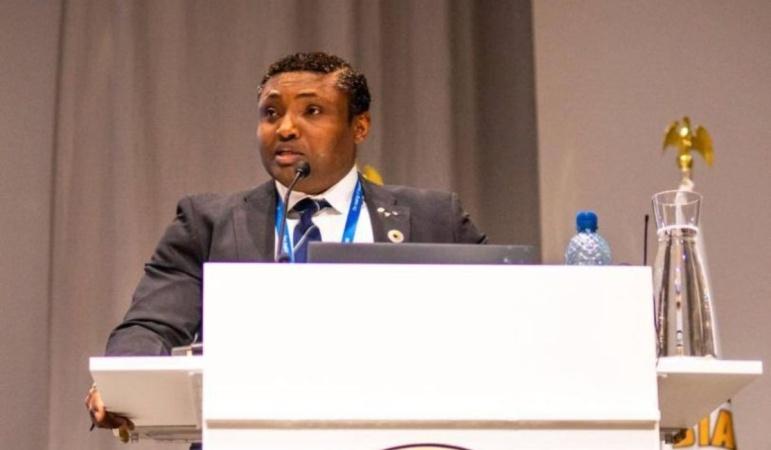- Court reserves judgment on Obi, Labour Party’s appeal, dismisses APM’s case
- Atiku insists on CSU evidence, former VP’s disposition invalid, says Tinubu
The Chairman of the Supreme Court panel hearing the appeals against the election of President Bola Tinubu, Justice John Okoro, said on Monday that the Peoples Democratic Party standard bearer in the February presidential election, Atiku Abubakar, must prove the allegation of certificate forgery levelled against the ex-Lagos State governor beyond reasonable doubt.
Okoro handed down the admonition during the hearing of the election petition appeals filed by Atiku and Peter Obi of the Labour Party.
He stated this following the submission of Atiku’s lead counsel, Chris Uche, SAN, urging the court to admit the fresh evidence brought by the petitioners.
In his bid to nullify Tinubu’s victory and prove the allegation that he was not qualified to contest the presidential poll, Atiku had prayed to an Illinois Chicago district court to order the Chicago State University to release the President’s academic records.
The former vice-president had accused Tinubu of falsifying the CSU diploma of Bachelor of Science in Business Administration awarded in 1979 that he submitted to the Independent National Electoral Commission.
He demanded a copy of any diploma issued by CSU in 1979, a copy of the diploma the CSU gave to Tinubu in 1979, and copies of diplomas with the same font, seal, signatures, and wording awarded to other students that are similar to what CSU awarded to him in 1979.
Atiku’s application was opposed by Tinubu’s lawyers, citing privacy concerns even as they conceded that only the certificate should be released and not other privileged records.
Academic Record
But the United States court ordered the release of the former Lagos State governor’s academic records which Atiku filed in support of his election petition appeal at the Supreme Court.
Addressing the apex court on Monday, Uche insisted that the issue of Tinubu’s academic records was a weighty matter and urged the Supreme Court to admit it as fresh evidence.
The senior lawyer said, “The issue involving Tinubu’s certificate is a weighty, grave, and constitutional one, which the Supreme Court should admit. I urge the court to admit the fresh evidence of President Tinubu’s academic records from CSU presented by Atiku.
“The court should take a look at Tinubu’s records and reach a decision devoid of technicality. As a policy court, the court has a duty to look at it and should side-step technicalities.”
Atiku’s lead counsel also said the issue of 180 days should not tie the hands of the court.
But Justice Okoro, while describing the matter as criminal in nature, said it must be proven beyond reasonable doubt.
He observed that there were two conflicting letters from Chicago State University.
According to him, one of the letters authenticated the President’s certificate and the other discredited it.
He said, “This is a criminal matter that has to be proved beyond reasonable doubt. There are two conflicting letters from the CSU: one authenticating the president’s certificate and another discrediting it.”
Another panel member, Justice Emmanuel Agim observed that the deposition Atiku was seeking to tender as evidence was done in the chambers of Atiku’s lawyer and not in the courtroom.
“I expected the college to write disclaiming the documents in dispute. Does a stenographer have the legal authority to administer oaths? We are dealing with a matter that touches on national interest,’’ he noted.
But Uche argued that the depositions were done in the presence of Tinubu’s US lawyers, adding that there was no dispute about it.
The counsel to the All Progressives Congress, Akin Olujinmi, SAN, told the court that Atiku should not be allowed to bring in documents not presented at the tribunal.
He said, “You cannot smuggle in a document into the Supreme Court without first tendering the same at the trial court. The appeal is misconceived and lacks merit. It should be outright dismissed.”
In his response to Uche’s arguments, the lawyer to the President, Wole Olanipekun, SAN, similarly urged the court not to admit the fresh documents, adding that INEC was not a party to it.
“The depositions are not admissible in the USA. It is akin to deposition which we have in Nigeria. The deposition was not done in court and INEC was not a party to it. The deposition must be adopted by the individual that deposed to it before it can be admitted as evidence before the court,“ he reasoned.
He also said the 180 days stipulated for the conclusion of election petition cases “is like a rock of Gibraltar, it cannot be moved.’’
INEC’s lawyer, Abubakar Mahmoud, asked the court to interpret section 285 of the constitution and also urged the court to dismiss the appeal.
The court which had Uwani Aji, Mohammed Garba, Ibrahim Saulawa, Adamu Jauro, Abubakar Tijjani, as other panel members, however, reserved judgment in the matter.
The court also reserved judgment in the appeal filed by the presidential candidate of the Labour Party, Peter Obi, against the tribunal’s judgment affirming Tinubu’s election.
Obi and the LP, through their lawyers led by Dr. Livy Uzoukwu, SAN, urged the court to uphold the appeal and set aside the judgment of the Presidential Election Petition Court that dismissed their petition.
The INEC, Tinubu, and the APC had prayed the court to dismiss the appeal for want of merit.
The panel said it would communicate the judgment date to all the parties.
Obi, who came third in the election, had in his 51 grounds of appeal, maintained that the PEPC panel erred in law and thereby reached a wrong conclusion when it dismissed his petition.
He alleged that the panel wrongly evaluated the proof of evidence he adduced before it and occasioned a grave miscarriage of justice when it held that he did not specify polling units where irregularities occurred during the election.
Obi and the LP further faulted the PEPC for dismissing their case on the premise that they did not specify the figures of votes or scores that were allegedly suppressed or inflated in favour of President Tinubu and the APC.
Seven-Man Panel
The seven-man panel led by Okoro after listening to the submissions of the parties involved in the matter said the judgment date would be communicated to them.
The panel led by Okoro said, “This appeal is reserved for judgment until a date to be communicated to the parties.”
The apex court struck out the appeal by the Allied Peoples Movement seeking to nullify the election of the President.
The party had claimed that the placeholder nominated by the president, Ibrahim Masari, was not replaced within 14 days as stipulated by section 33 of the Electoral Act.
The lead counsel for the party, Chukwuma -Machukwu Ume argued that their appeal was not premised on double nomination which the lower court ruled on, insisting that Vice President Kashim Shettima was illegally nominated.
But Okoro asked him if the APM had anything to gain from the matter.
He said, “What will you gain if you win this appeal? There are other appeals that are asking for something substantial. There is nothing to gain but to give us work to do. You are not asking us to put your candidate there as president.”
The APM lawyer applied to withdraw his appeal.
The APC, INEC, Ibrahim Massari, and Tinubu’s counsels did not object.
“Having been withdrawn, the appeal is hereby struck out,” Okoro said.
Credit: The Punch

 BIG STORY4 days ago
BIG STORY4 days ago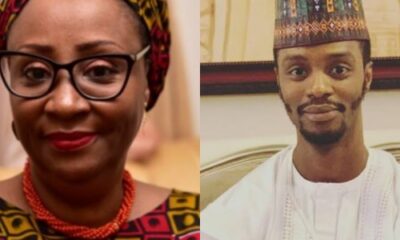
 BIG STORY4 days ago
BIG STORY4 days ago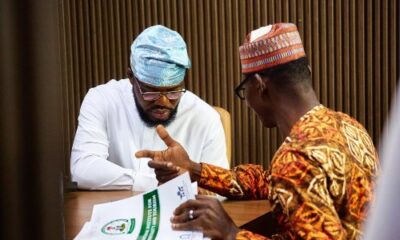
 BIG STORY4 days ago
BIG STORY4 days ago
 BIG STORY3 days ago
BIG STORY3 days ago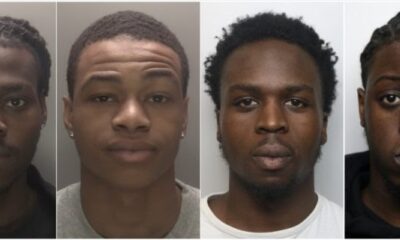
 BIG STORY5 days ago
BIG STORY5 days ago
 BIG STORY4 days ago
BIG STORY4 days ago
 BIG STORY24 hours ago
BIG STORY24 hours ago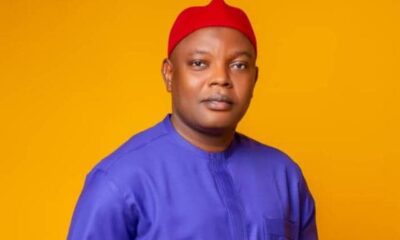
 BIG STORY5 days ago
BIG STORY5 days ago




